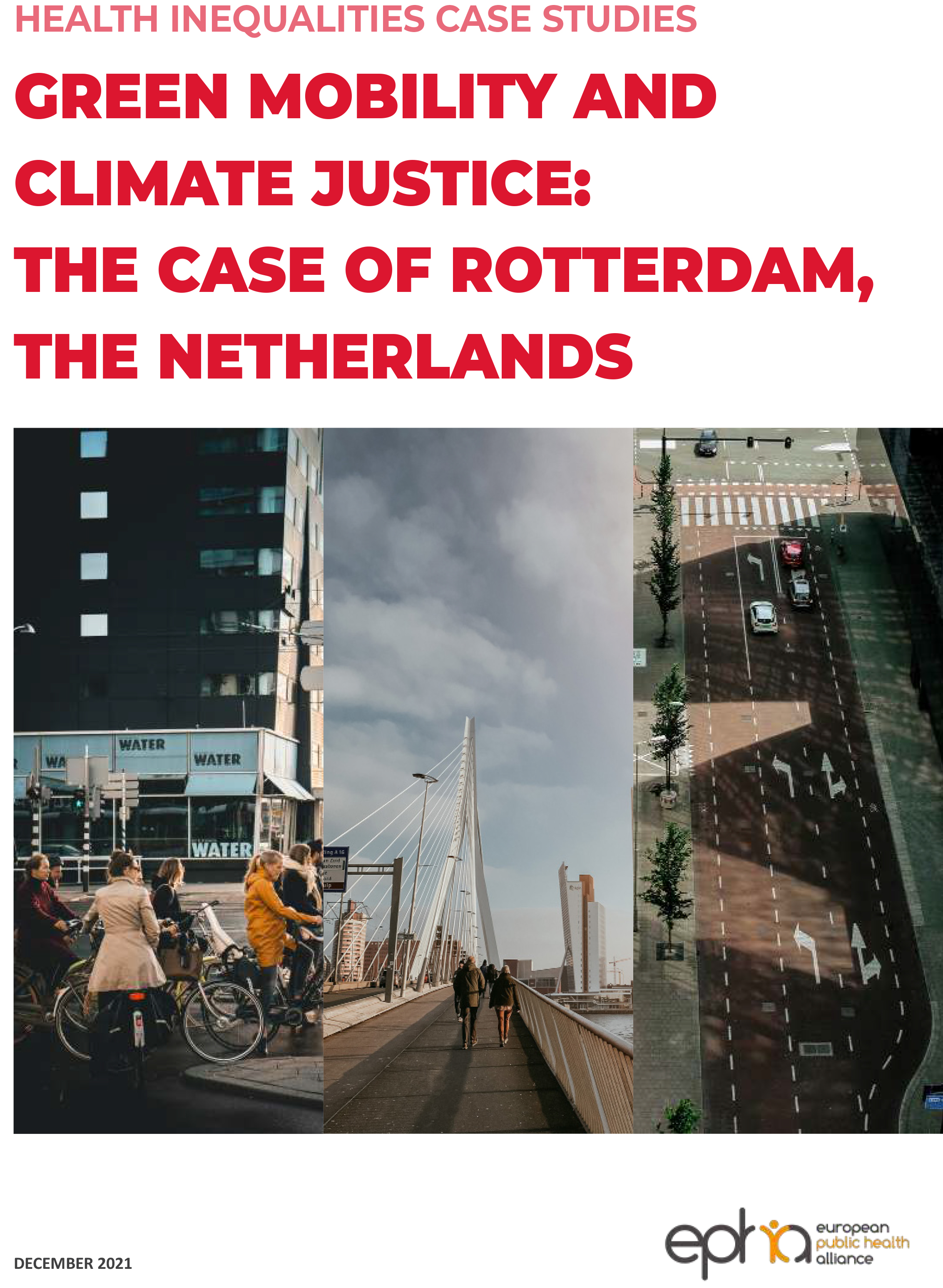Climate change poses the biggest global health threat of this century, yet this issue remains under-recognized. The many ways global warming will affect our health are not yet fully understood, but the changes to our environment become more dramatic and further exacerbate health inequalities among disadvantaged communities.
A study issued under EPHA’s article series on health inequalities shows that the higher the social score of a neighbourhood, the lower the number of public transport stops and the higher the number of cars per household. The case of Rotterdam demonstrates how air pollution, green mobility and health inequalities are interconnected, as a result, the policy recommendations proposed by the authors are applicable to many European cities:
- Address low green transport use in neighbourhoods with a high social score;
- Implement proportional financial penalties for non-electric car use;
- Make public transport accessible for all;
- Exchange good practices with other cities.
Article series on health inequalities
EPHA has called on researchers and policy analysts to submit articles to help build knowledge about how the health of disadvantaged groups is affected by inequalities in areas such as employment, housing, education, healthcare, environment, and climate.


